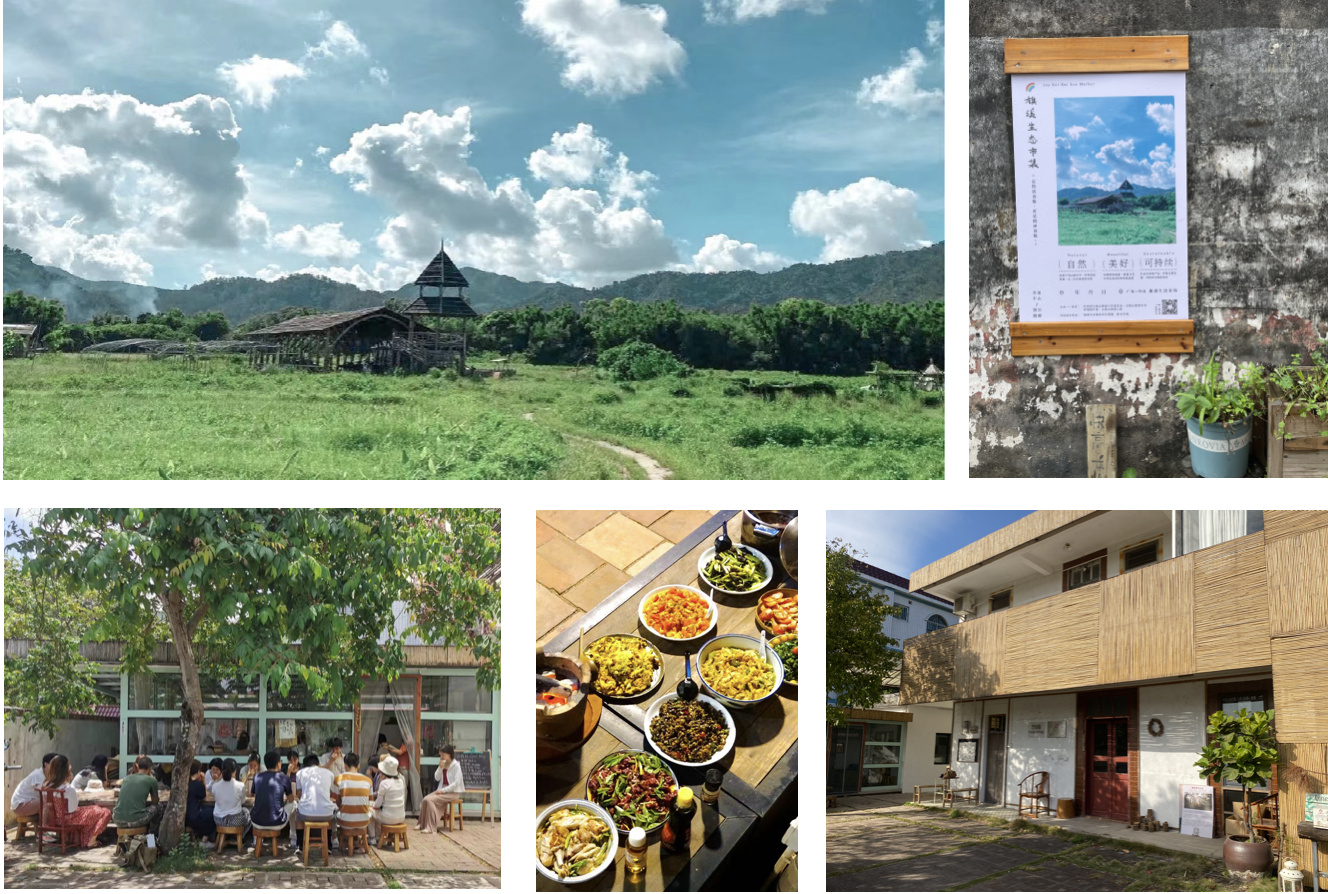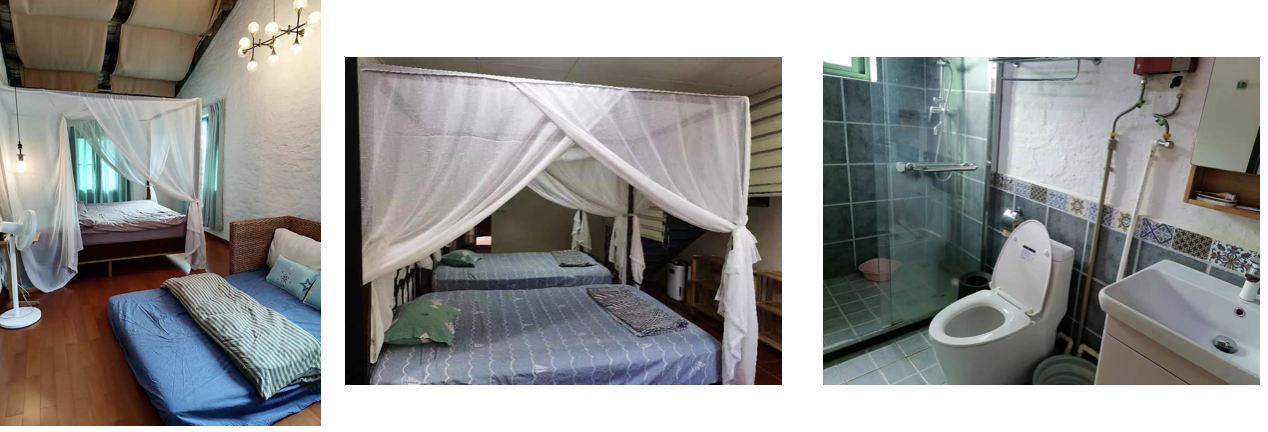
Dates: April 1 to 7, 2023
The anthropology of ethics empirically explores how people live a “good life” in diverse sociocultural contexts. This investigation is especially salient in contemporary China, where rapid structural transformations entwine with local projects aimed at making unique, meaningful existences.
This CEL immersive learning trip is designed and led by Dr. Liangliang Zhang, GPS Teaching Fellow and anthropologist with long-term interests in ethics and socio-political change in a globalized China. It will take students deep into one of China’s first self-proclaimed “ecological villages” that has been taking shape since 2014. Participants will acquire embodied knowledge of this small but vibrant grassroots community and, furthermore, gain exposure to doing ethnographic fieldwork. Guided by theoretical resources from anthropology and allied disciplines, participants will explore diverse modes of living in the Kei Kai eco-village, interacting with stakeholders of various backgrounds. In doing so, they will learn about the processes, tensions, and contradictions that are reshaping the environments and existences of people living in rural China.
At the end of the trip, students will compose a photo essay (or a creative project of their choice, accompanied by an artist’s statement) to document and reflect upon their individual experiences. These works will form an exhibition hosted on campus for the wider community.
This CEL fieldwork trip will also include an NYU Shanghai Reads component. Participants are recommended to read Chapter 5 “Life in a Microcosm” and Chapter 6 “Time and Territory” of The Sound of a Wild Snail Eating, this year’s NYU Shanghai Reads book. There will be a moonlit book discussion followed by an improv dance workshop themed “Time and Territory” in the chamomile fields of a farm.
Costs
The CEL Office will cover 90% of local expenses of the trip (accommodations, facility and workshop fees, and most meals). Students will need to purchase their own roundtrip airfare (estimated ~RMB 2,200) and pay a 500 RMB non-refundable deposit through the University Bursar by Feb 22.
Application Instructions
Apply to join the trip by filling out the form here by February 12. Spots are limited and participants will be notified of their application outcome one week after the application deadline. Questions can be emailed to Chunhao Qian, CEL Coordinator, at shanghai.cel@nyu.edu.
Itinerary - subject to revision
Day 1: The Arrival (Saturday April 1)
- Group Travel from Shanghai to Guangdong
- Arrival in the Kei Kai village and moving into accommodation
- Dinner in local restaurant
- Evening Circle – Welcome, Checking in, and Intention-setting
Day 2: The Encounter (Sunday April 2)
The theme of the day is sensorily-rich and embodied encounters with some of the defining values and life practices of the ecological living community. Students will also “encounter” themselves and fellow participants through an iconic board game called the Transformation Game, which traveled all the way from Findhorn ecological village in Scotland to Kei Kai.
- 7:00 am – 8:30 am: Picking Chamomile on the Kei Kai Living Farm
- 8:30 am – 9:30 am: Breakfast at Kei Kai Living Farm
- 9:30 am – 10:45 am: Introduction to the Practice of Engaged Ethnography (Seminar)
- 10:45 am – 12:00 pm: Community Walking Tour
- 12:00 pm – 1:00 pm: Vegan Lunch at Kei Kai Youth Center
- 1:00 pm – 2:30 pm: Rest Time – Nap, journal, meditate, or daydream
- 2:30 pm – 5:00 pm: The Transformation Game at Kei Kai Youth Center
- 5:00 pm – 8:00 pm: Preparation and Participation in the Earth Kitchen
- 8:00 pm – 9:30 pm: Evening Sharing Circle
Day 3: Making (Monday April 3)
Today we explore the making of livelihoods in Kei Kai through deep conversations and hands-on experiences. We will meet artists and artisans based in the eco-village and learn about sensory ethnography as well as the ethnographic interview.
- 8:00 am – 9:00 am: Breakfast - the renowned bamboo-steamed Cheong Fun
- 9:00 am – 10:15 am: Doing Sensory Ethnography (Seminar)
- 10:30 am – 12:00 pm: 幸福制皂 Making Your Own Happiness – Soap Making Workshop
- 12:00 pm – 1:00 pm: Lunch at Kei Kai Living Farm
- 1:00 pm – 2:30 pm: Rest Time
- 2:30 pm – 5:00 pm: Apprenticeship – Parallel workshops
- Baking/Plant Dye/Candle Making
- Sustainable Drawing
- Woodwork
- 5:00 pm – 7:00 pm: Dinner at Yanyan’s Dragon Fruit Farm
- 7:00 pm – 8:15 pm: The Basics of the Ethnographic Interview (Seminar)
Day 4: Educating (Tuesday April 4)
Today we will focus on exploring the remarkable innovations and equally remarkable struggles of grassroots educators in Kei Kai. We will visit a grassroots non-state school with 1,200 students featuring an innovative art education program and hold conversation and ethnographic interviews with a range of educators based in the village.
- 8:00 am – 9:00 am: Breakfast
- 9:00am – 1:00 pm: Guinan School 桂南学校 visit and lunch
- 1:00 pm – 2:30 pm: Rest Time
- 2:30 pm – 5:00 pm: What Makes a Good Education in Kei Kai? A round-table conversation and ethnographic interviews
- 5:00 pm – 6:30 pm: Dinner
- 7:00 pm – 8:30 pm: Evening Circle
Day 5: Living (Wednesday April 5)
Today we will continue to explore the fabric of life in the Kei Kai village. We will meet more residents, both “new” and “old,” as well as embark on a hike to explore the local ecology and enjoy a moonlit book discussion followed by a guided improv dance workshop in the chamomile fields.
- 8:00 am – 9:00 am: Breakfast
- 9:00 am – 12:00 pm: Guided Nature Exploration Hike
- 12:00 pm – 1:00 pm: Vegan Lunch at Muzi’s Hundred Herbs Garden
- 1:00 pm – 2:30 pm: Rest Time
- 2:30 pm – 5:00 pm: What Does it Mean to Live a Good life in Kei Kai? A round-table conversation and ethnographic interviews
- 5: 00 pm – 6:30 pm: Dinner
- 6:30 pm – 7:30 pm: Moonlit Book Discussion – The Sound of a Wild Snail Eating
- 7:30 pm – 9:00 pm: Improv dance workshop
Day 6: Seeing Kei Kai through Your Eyes (Thursday April 6)
Working in groups of 3, students will have a free day to explore the village and gather any additional materials/experiences they need for the creative ethnographic project. Students will take care of their own breakfast and lunch and make personalized connections with village residents, both human and other-than-human (for instance, the ancient camphor trees).
- 6:00pm – 7:00pm: Dinner
- 7:00pm – 8:30pm: Evening Circle: How and what did you see?
Day 7: The Farewell (Friday April 7)
- Breakfast
- Morning Circle – Checking in, Reflection, Farewell
- Travel from Guangdong to Shanghai
Gentle Reminders:
- Participants will be accommodated in local guest houses with bedrooms shared by 2-4 students and shared shower and bathrooms (see photos at the bottom of this page). Please communicate in the application form if you require special accommodation due to any reason. Our organizing team will do the best to accommodate your needs.
- In the spring, insects (including mosquitos and spiders) are part of the fabric of life in Kei Kai. While insect repellents can help to a certain extent, you may expect leaving Kei Kai with unforgettable experiences and a good number of mosquito bites.
Required Readings and Trainings
Prior to departure on 1 April 2023:
Students are required to complete a CITI Program Training on Social & Behavioural Research – Basic/Refresher (with 7 required units and 3 elective units on “Introduction to Community-Engaged Research,” “Introduction to Community-Based Participatory Research,” and “Ethical and Practical Considerations in Community-Engaged Research”) prior to departure. Students will be required to submit the CITI training certificate to demonstrate completion of the training.
- Students are required to read/watch the following academic sources and be prepared to discuss them in the seminars:
- Gupta, A., and Ferguson, J. (1977). “Discipline and practice: ‘The field’ as site, method, and location in anthropology.” Anthropological Locations: Boundaries and Grounds of a Field Science, 100, 1-47.
- Howell, S. (2018). “Ethnography”. In The Open Encyclopaedia of Anthropology, edited by Felix Stein. Online: http://doi.org/10.29164/18ethno.
- Ingold, T. (2017). “Anthropology contra ethnography.” HAU: Journal of Ethnographic Theory, 7(1), 21-26.
- Pandian, A. (2019). A Possible Anthropology. Duke University Press. Read at least:
- “Introduction: An ethnographer among the anthropologists”
- “The world at hand: Between scientific and literary inquiry”
- Pink, S. (2010). What is Sensory Ethnography? Presentation at the 4th ESRC Research Methods Festival, Oxford, UK (Video).
- Schrock, R. D. (2013). “The methodological imperatives of feminist ethnography.” Journal of Feminist Scholarship, (5), 48-60.
Sample Room photos


